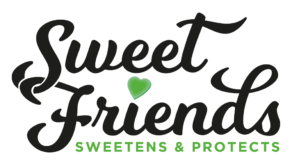
03 Aug Is Xylitol Dangerous?
Providing you with products that improve your family’s health and wellness is our highest priority. Each of our products features xylitol as a key ingredient due to its significant health benefits. Recently, critics within our health conscious community have begun asking if there are any dangers of xylitol. As always, we strive to provide clear facts about our products and each of their ingredients.
For more than 25 years, health professionals worldwide have conducted clinical studies to better understand the benefits and possible dangers of xylitol. These studies have proven xylitol to have significant oral and nasal health benefits and to be the healthiest alternative to sugar.
Although the name xylitol may sound like it was created in lab, it’s actually a naturally occurring sugar alcohol found in fruits, vegetables, and plant fibers. It isn’t foreign to us; in fact, our bodies naturally produce 5 to 10 grams of xylitol each day through the natural process of metabolism.
Sweet in taste and white in color, if you compared xylitol and sugar side by side it would be hard to tell the difference. Xylitol is a low-calorie carbohydrate which doesn’t raise your blood sugar or insulin levels, making it perfectly safe for people with hypoglycemia, diabetes, and pre-diabetes. Clinical studies have proven xylitol to be effective in improving over-all health when ingested as a sugar alternative.
Xylitol has powerful oral health benefits. When introduced orally, xylitol cleanses the teeth and gums while moisturizing the sensitive oral tissues in the mouth. It prevents tooth decay and cavity causing bacteria from sticking to your teeth and multiplying. Several studies have also proven xylitol to help manage tooth decay and keep cavities from getting worse.
Upper respiratory health also greatly benefits from xylitol exposure. As an ingredient in nasal spray and nasal irrigation solutions, xylitol works like a cleanser for the sinus and nasal passageways. It gently washes away airborne irritants while moisturizing the nasal tissues. After nasal exposure to xylitol, it’s difficult for airborne irritants to stick to the nasal lining and cause further irritation and congestion.
After more than a quarter of a century’s worth of clinical research and studies, doctors and dentists around the world agree that the only dangers of xylitol are to certain animals. Although it is deemed completely safe for human use, the dangers of xylitol when ingested by your pets can be dire. Just like chocolate, raisins, or onions, xylitol products can cause a variety of health problems, including death, if ingested by pets. Please keep all xylitol products at a safe distance from your fur babies.
